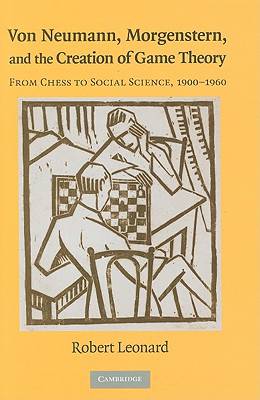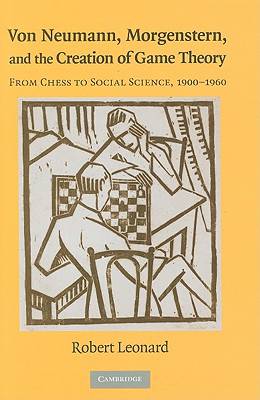
- Afhalen na 1 uur in een winkel met voorraad
- Gratis thuislevering in België vanaf € 30
- Ruim aanbod met 7 miljoen producten
- Afhalen na 1 uur in een winkel met voorraad
- Gratis thuislevering in België vanaf € 30
- Ruim aanbod met 7 miljoen producten
Zoeken
Von Neumann, Morgenstern, and the Creation of Game Theory
From Chess to Social Science, 1900-1960
Robert Leonard
€ 201,95
+ 403 punten
Uitvoering
Omschrijving
Drawing on a wealth of new archival material, including personal correspondence and diaries, Robert Leonard tells the fascinating story of the creation of game theory by Hungarian Jewish mathematician John von Neumann and Austrian economist Oskar Morgenstern. Game theory first emerged amid discussions of the psychology and mathematics of chess in Germany and fin-de-siècle Austro-Hungary. In the 1930s, on the cusp of anti-Semitism and political upheaval, it was developed by von Neumann into an ambitious theory of social organization. It was shaped still further by its use in combat analysis in World War II and during the Cold War. Interweaving accounts of the period's economics, science, and mathematics, and drawing sensitively on the private lives of von Neumann and Morgenstern, Robert Leonard provides a detailed reconstruction of a complex historical drama.
Specificaties
Betrokkenen
- Auteur(s):
- Uitgeverij:
Inhoud
- Aantal bladzijden:
- 424
- Taal:
- Engels
- Reeks:
Eigenschappen
- Productcode (EAN):
- 9780521562669
- Verschijningsdatum:
- 28/06/2010
- Uitvoering:
- Hardcover
- Formaat:
- Ongenaaid / garenloos gebonden
- Afmetingen:
- 160 mm x 229 mm
- Gewicht:
- 771 g

Alleen bij Standaard Boekhandel
+ 403 punten op je klantenkaart van Standaard Boekhandel
Beoordelingen
We publiceren alleen reviews die voldoen aan de voorwaarden voor reviews. Bekijk onze voorwaarden voor reviews.











